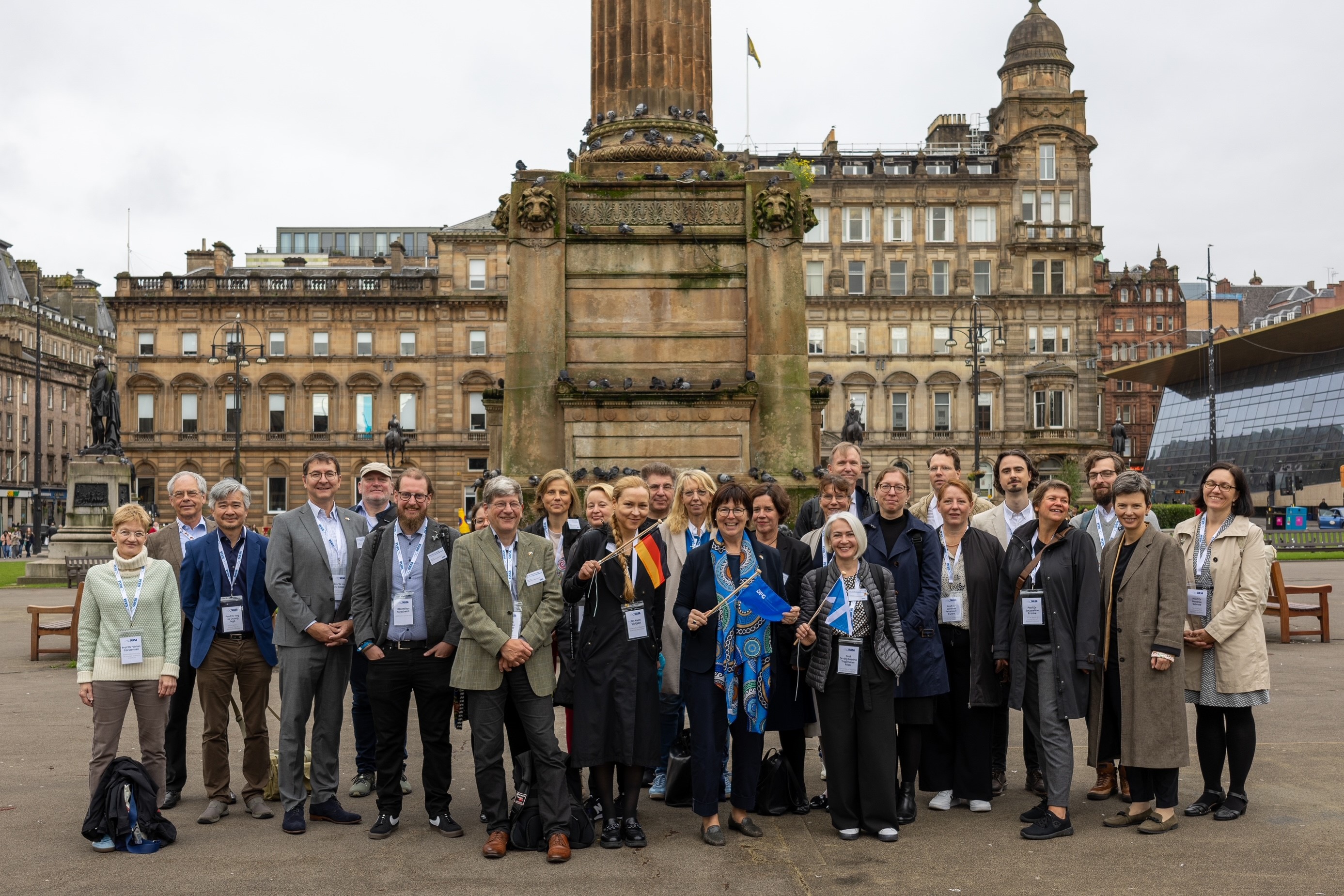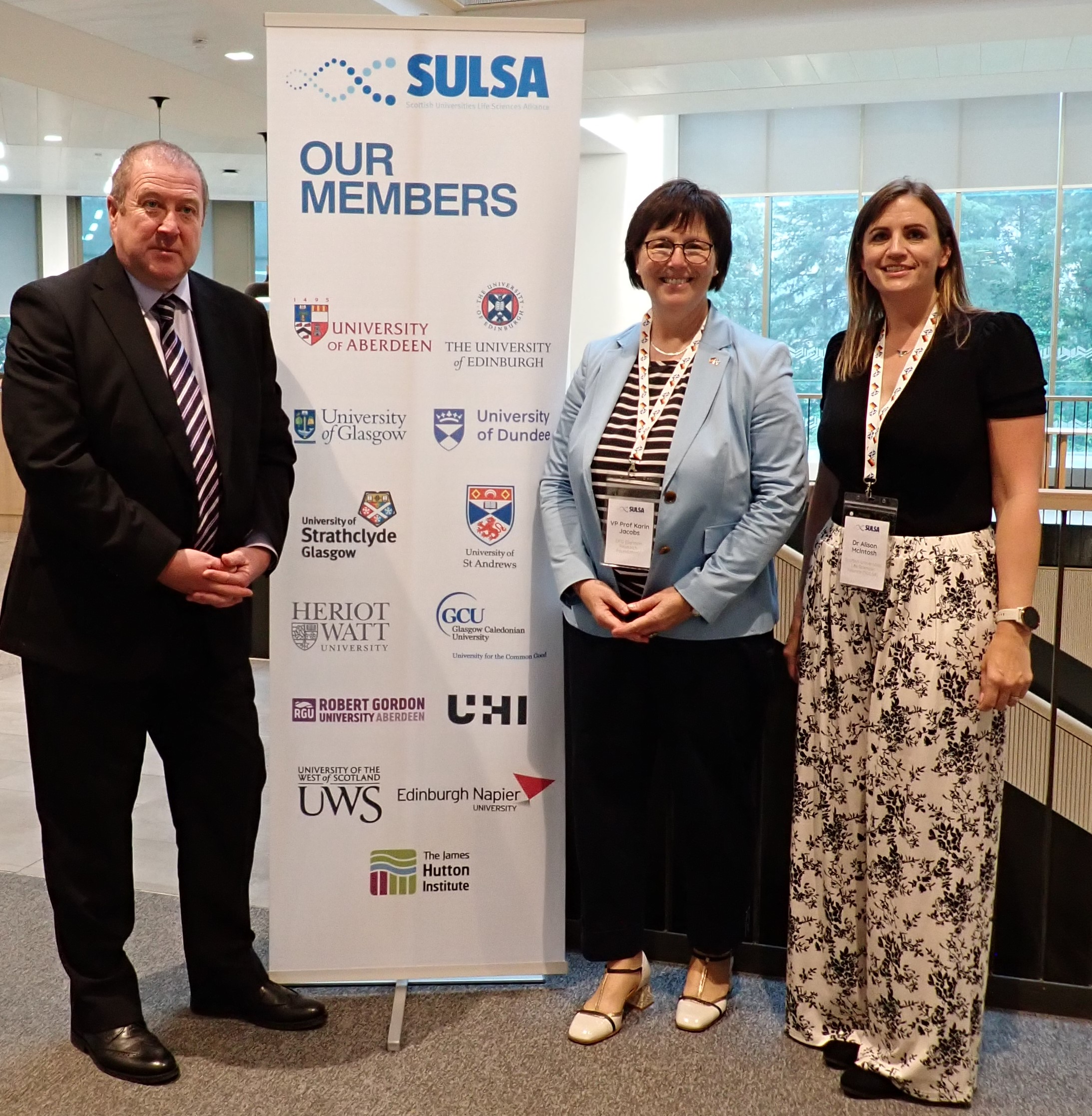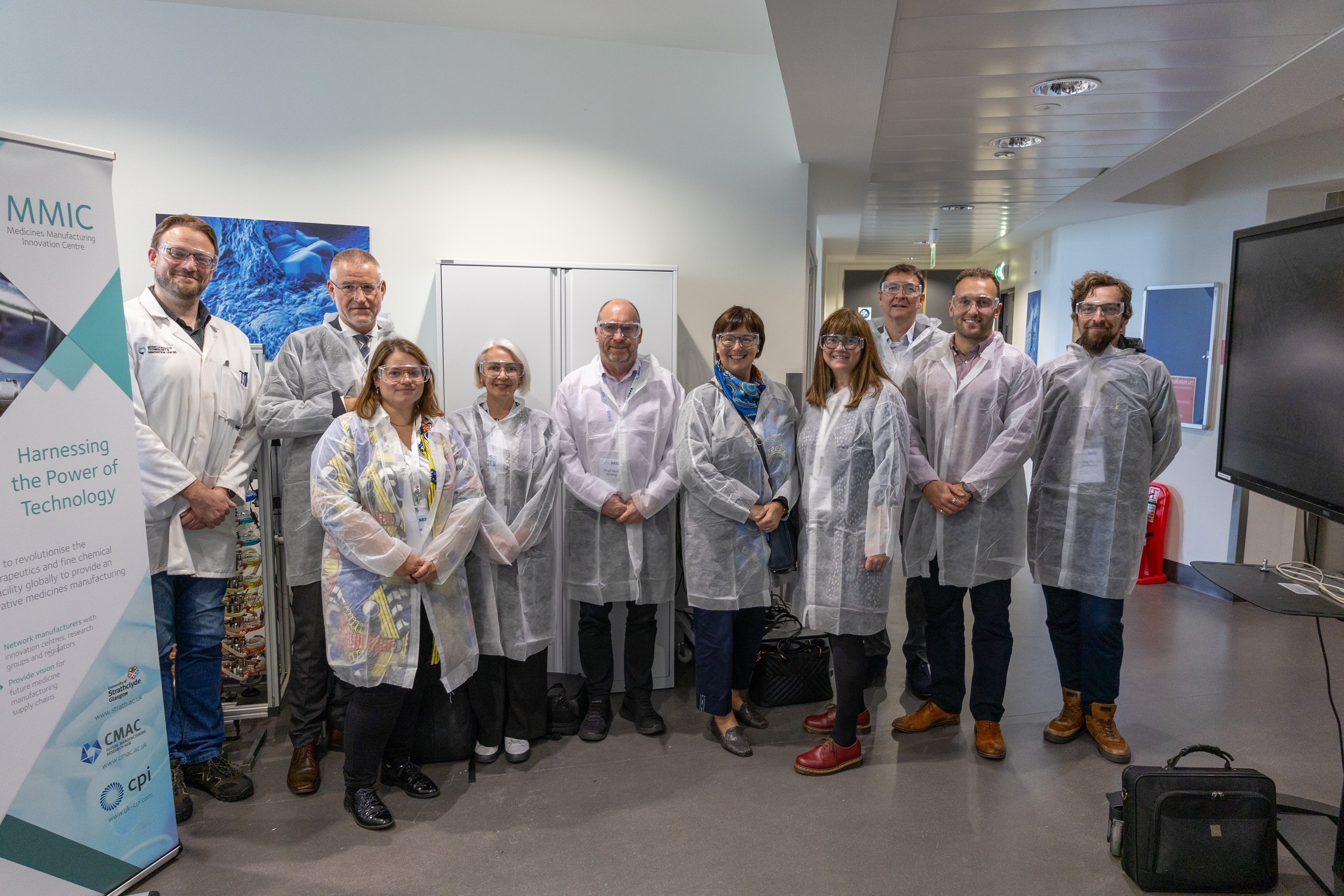DFG Delegation Visits Scotland: Promotion of Internationalisation of Research Performed at Universities of Applied Sciences
From 2 to 6 September 2024, the Deutsche Forschungsgemeinschaft (DFG, German Research Foundation) travelled to Scotland with a delegation as part of its initiative “Networking for Research – Universities of Applied Sciences and Researchers Worldwide (UDIF-HAW)”. 22 representatives of German universities of applied sciences had the opportunity to get to know 13 Scottish universities and research institutes and to strengthen their local contacts in the area of “Health and Environment”. DFG Vice President Professor Dr. Karin Jacobs joined the delegation on its trip.
As part of the stay, the participants visited the University of Edinburgh, the University of Strathclyde (Glasgow), the University of St. Andrews and the University of Highlands and Islands (Inverness). In addition to this, representatives of nine other Scottish universities came to introduce the German delegation to their institutions and core research areas. In a scientific exchange, the German representatives and their Scottish peers discussed interdisciplinary and multi-disciplinary issues related to the area of “Health and Environment”. The lectures covered a wide range of topics, from microbiology and artificial intelligence, to social and ethical aspects in the area of healthcare.
At the start of the trip, Professor Dr. Karin Jacobs welcomed the delegation at the University of Edinburgh, highlighting the importance of research performed at universities of applied sciences in the international context: “Together, we are committed to shaping the future with a focus on an interdisciplinary approach: the health challenges we face affect us all, and we need to tackle them together. This is why the DFG, together with all of you, is committed here and now to bringing researchers together, supporting international research cooperation and promoting international networks, thereby leveraging the potential of the UAS.”
Professor Jacobs met with the Minister for Higher and Further Education and Minister for Veterans, Graeme Dey, to discuss German-Scottish scientific relations. As part of the British research system, Scotland has been advocating strong links to the European research landscape for many years. This is reflected in a large number of partnerships between German and Scottish research institutions and the Scottish Government's support of academic networks and contacts. The visit by the universities of applied sciences opened up another academic area for cooperation with the diverse Scottish research and innovation landscape.
Minister Graeme Dey stressed the role of such cooperation: “Meeting with the German Research Foundation is another example of our ongoing collaboration with European partners in both research and education. Our discussions were underpinned by a shared commitment to making a difference in our society and how enhanced collaboration can help tackle a number of global health and environmental challenges. This partnership will ensure that Scottish universities and German universities of applied sciences can drive real world impact.”
The scientific programme was organised in close cooperation with the Scottish Universities Life Sciences Alliance (SULSA). The SULSA has done an excellent job in promoting networking within the community, identifying relevant topics and partners, and bringing German researchers together with potential partners from Scotland.
On 6 September, Christiane Hullmann, the German Consul General in Edinburgh, joined the discussion on prospective cooperation between German UAS and Scottish universities.
With its UDIF initiative, the DFG seeks to open up new potential and cooperation between German higher education institutions with a strong research profile and their partners in Germany and abroad. The key objective of the UDIF-HAW activities is to network UAS researchers with international researchers and to raise awareness of DFG funding formats among UAS.
UDIF-HAW is part of the DFG package of measures to further develop the research potential at UAS.
Further Information
Contact
| E-mail: | udif-haw@dfg.de |


